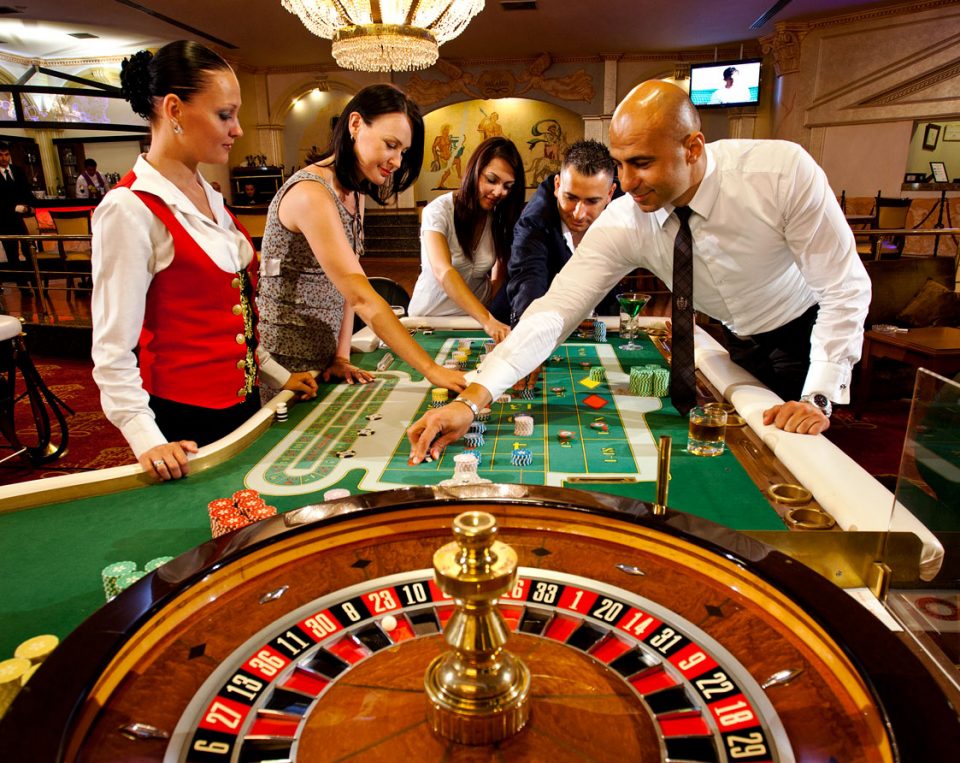The remarkable Progression of Gambling Pastimes Across the Centuries

Gambling games have captivated players for centuries, transforming from simple pastimes to sophisticated forms of entertainment that combine luck, strategy, and fun. From the ancient roots of gambling in societies including ancient Mesopotamia and Rome to the extravagant corridors of modern casinos, the journey of these games reveals much about human nature and our relationship with luck. As cultures have merged and technology has advanced, casino games have transformed, illustrating shifts in society and advancements in gameplay.
The earliest forms of gambling likely included simple dice games and placing bets on the outcomes of athletic contests. Through the years, these early games grew into more complex games like table games, roulette, and the myriad slot machines that populate the premises of casinos today. Each era brought its own set of rules, design elements, and social relevance. At present, casino games maintain their evolution with the rise of online platforms, enabling players from various parts of the world to participate in a collective experience, further merging the traditional with the age of technology.
Initial Origins of Casino Activities
Casino activities have origins that extend back to ancient civilizations, where gambling was strongly integrated in social traditions and cultural rituals. The first known forms of betting appeared in ancient Mesopotamia around three thousand BC, involving simple die activities made from bone bones. These primitive games laid the foundation for more advanced gambling activities, reflecting humans' instinctive urge to find wealth and entertainment through luck.
As societies progressed, so did their gambling interests. In ancient Chinese culture, around two thousand three hundred BC, tiles were discovered that looked like primitive basic versions of a lottery game game. More structured forms of betting emerged in the ancient Roman civilization, where activities of luck were a frequent recreation, often taking place in social gatherings. The ancient Romans developed various wagering activities, which included die and table games, showing the pervasive nature of gambling across different economic classes.
With the movement of years, these primitive games influenced the progress of contemporary casino games. In the medieval period, playing card activities grew prevalent in Europe, paving the way for the organized gambling venues we know today. The shift from casual gambling to formal gambling in taverns and personal homes marked a major transformation in how people interacted with games of luck, leading to the subsequent creation of casinos as specialized venues for betting.
The Rise of Current Gambling Industry
The final 20th century marked a crucial transition in the realm of gaming, propelled by technological progress and changes in societal views towards wagering. https://five88l.vip/ The emergence of personal computers and the internet altered the way gamblers interacted with their favorite casino games. Online casinos emerged, allowing enthusiasts to enjoy traditional casino classics like poker and 21 from the safety of their houses. This new digital landscape not only expanded access to casino games but also attracted a younger demographic who found the ease and diversity appealing.
As digital gaming gained momentum, so did innovations in casino tech. The creation of advanced software and visual elements converted conventional gambling games into immersive adventures. Gamblers could now connect with authentic live dealers through live feeds, bringing the vibe of brick-and-mortar casinos directly into their homes. This fusion of in-person play with digital interfaces created a novel combination that elevated the community element of playing, allowing it possible for people to connect and challenge with others around the planet.
Additionally, the growth of gaming on mobile devices substantially changed the casino landscape. With the widespread use of smartphones and touch devices, players can enjoy their favorite gaming options at any location, whenever. Mobile apps offer a vast array of options tailored for touchscreens, serving the dynamic lifestyle of contemporary gamers. This accessibility has led to growing engagement in casino games, contributing to the rapid expansion of the gaming industry. As a result, the future of the gaming industry continues to develop, responding to new technologies and shifting consumer preferences.
How Technology Influences Casino Games
Technology's advancement has significantly transformed casino games, improving the overall experience for players for gamblers globally. As the internet emerged, online casinos were created, allowing players to play their preferred games from the comfort of their homes. This shift not only made casino games more available but also increased the variety of games available, as online platforms could host numerous variations of traditional games without the limitations of brick-and-mortar establishments.
Mobile technology further revolutionized the casino gaming landscape. As smartphones and tablets became widespread, players now have the ability to play casino games anytime and anywhere. This flexibility has resulted in the creation of dedicated mobile applications and optimized websites that provide seamless gaming experiences. Additionally, advancements such as live dealer games have delivered the authentic atmosphere of a casino into players' homes, bridging the gap between physical and online gaming.
Furthermore, advancements in AI and VR are paving the way for the next generation of casino games. AI enhances game design and player interaction, creating tailored experiences based on user behavior and preferences. Meanwhile, virtual reality offers immersive environments where players can engage in a simulated casino setting, making the gaming experience more exciting and realistic. As technology continues to evolve, the future of casino games looks promising, filled with limitless opportunities for advancements and entertainment.
